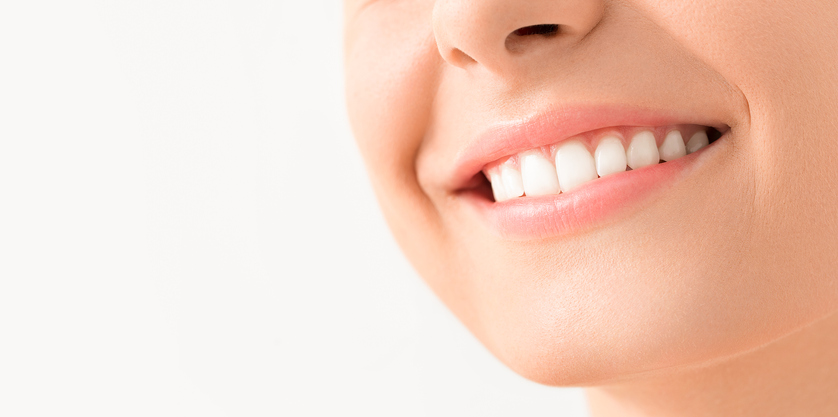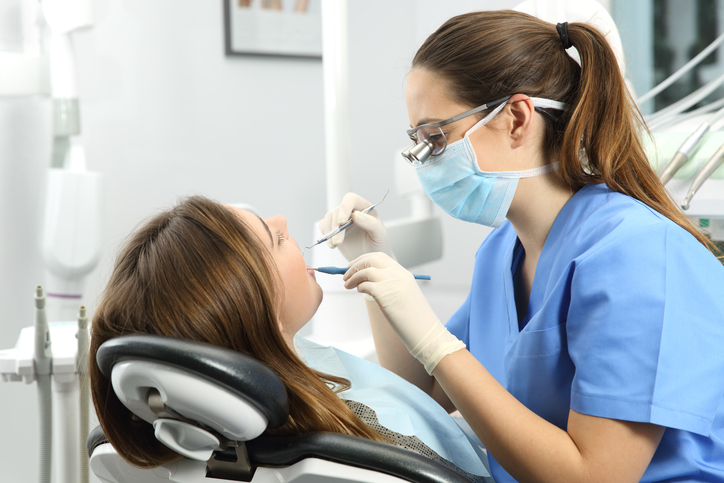-
Why Oral Piercings Aren’t a Smart Idea

Dentists generally advise against getting oral piercings for a number of reasons. Any time skin or tissues are penetrated there is a possibility of infection. Since the mouth is teeming with millions of bacteria, an injury in the mouth is highly prone to getting infected. Oral piercings are essentially intentional injuries. If an infection isn’t detected and treated right away, it’s possible for the bacteria to enter the bloodstream, which may result in a life-threatening complication.
Oral piercings can also be harmful for your teeth and gums. Biting on the piercing can lead to sensitive, chipped, or cracked teeth. It may also inadvertently lead to gum tissue injuries. Additionally, the act of piercing the tongue can result in nerve damage, which may become permanent. Permanent nerve damage can affect your sense of taste and your ability to move your mouth properly.
The dentists at Glenwood Premier Dental are dedicated to providing compassionate, judgment-free patient education because your oral health is our top priority. Call (732) 264-4477 to schedule a dental exam in Hazlet.
-
What To Do When You Knock Out a Tooth

Tooth avulsion is the term for a completely knocked-out tooth. It may occur as a result of a sports injury, fall, or motor vehicle accident. It may be possible to save the tooth if you get to the dentist’s office in time. To increase your chances of salvaging your natural tooth, you should know the following dos and don’ts. Even if your natural tooth can’t be saved, you can still get a complete smile again with implant dentistry.
Do retrieve the tooth carefully.
As soon as you realize your tooth is missing, look around the area for it. Pick it up by the white part only. Do not touch the root because it can easily sustain damage.
Don’t scrub the tooth clean.
If the tooth is dirty, your first impulse might be to scrub it clean. But this can do more harm than good. Instead, rinse it gently. Use milk if it’s available. Otherwise, use clean water. Afterward, don’t wipe the tooth with any sort of fabric.
Do try to reinsert the tooth gently.
You can try to reinsert the tooth into the socket. Make sure it’s facing the right way, and then gently place it in the socket. Don’t apply any pressure to force the tooth back in place. If it won’t go in, you should abandon the attempt.
Don’t let the tooth dry out.
If you aren’t able to reinsert the tooth in the socket, you’ll need to keep it moist. You can use a tooth preservation kit if you have one available. If not, use a cup of milk. If you have no milk, you can place the tooth in a cup of water. As a last resort, tuck the tooth inside your mouth. Hold it between your cheek and your gum, and be very careful not to bite the root. Before placing the tooth in your mouth, call the emergency dentist and let the office know you’ll be over right away with an avulsed tooth.
Emergency dentistry in Hazlet is available at Glenwood Premier Dental, conveniently located on Bethany Road. Our dentists use cutting-edge technology that may save your natural tooth, or we can begin planning its replacement with reliable implant dentistry. You can reach our office at (732) 264-4477.
-
Overcoming Common Issues with Your Dentures
Your dentist is your best source of information about denture care. However, you can also watch the accompanying video for some quick tips about overcoming common denture issues, such as slippage and excess saliva. You’ll also find out why some of these issues occur.
For example, excess salivation occurs because the mouth isn’t yet used to the dentures. You may find it helpful to suck on a sugar-free mint. If your dentures are causing soreness, you can rinse with warm salt water. However, if soreness persists, talk to your dentist. Your dentures may need an adjustment.
For complete denture care in Hazlet, call Glenwood Premier Dental at (732) 264-4477. Our dentists can help you adjust to your new dentures, and provide adjustments or replacements if needed.
-
Keeping Baby’s Smile Healthy

Your baby’s smile is precious. Sometime between four and seven months of age, you’ll begin seeing teeth erupt. It’s essential to take good care of your baby’s smile because, even though the baby teeth are temporary, infant dental decay is a serious problem. Dentists recommend scheduling the first dental exam within six months of the appearance of the first tooth, and by the baby’s first birthday. But if you notice any problems, you should bring your child in to see the dentist right away.
Caring for Your Baby’s Gums
You can promote oral health from the first day of your baby’s life. Moisten a soft, clean washcloth or a pad of sterile gauze, and wipe your baby’s gums gently at least twice daily. You should also wipe your baby’s gums after each feeding and before putting your baby down to sleep.
Preventing Baby Bottle Decay
Baby bottle decay is a term used for tooth decay in infants. Tooth decay in children this young is often caused by the common practice of putting babies to bed with a bottle. Avoiding this habit is one effective way to protect your child’s oral health. You should also avoid giving your baby fruit juice, which is high in sugar. Additionally, clean your baby’s pacifier with water, instead of cleaning it with your own mouth. Swapping saliva with your baby will transfer germs from your mouth to your baby’s.
Brushing Your Baby’s Teeth
As soon as your baby’s first tooth erupts, you can begin brushing it gently. Use an infant-sized toothbrush. Add just a tiny smear of fluoride toothpaste—no bigger than a grain of rice—and gently brush the teeth using circular strokes. Once your child turns three, you can use a pea-sized amount of fluoride toothpaste. You can also begin teaching your child to brush his or her own teeth, but kids still need to be supervised until they are at least six or seven.
We care for patients of all ages here at Glenwood Premier Dental. If you have any questions about your baby’s oral health, one of our dentists in Hazlet will be happy to assist you. Give us a call today at (732) 264-4477.
